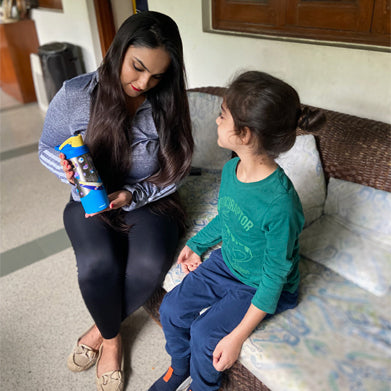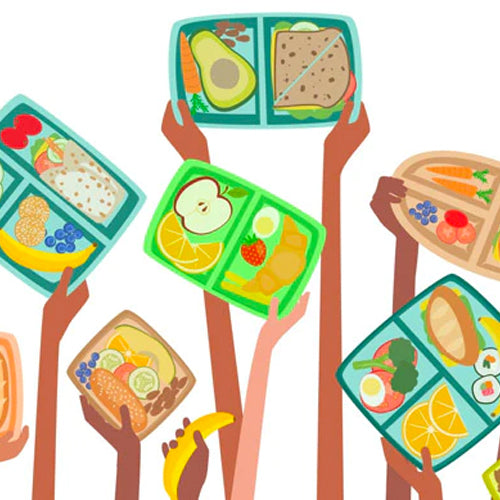What would you say is a parent’s worst nightmare? When their child is ill. Excessive precautions are taken to prevent illnesses caused by viruses or airborne insects but what of food poisoning? That is a measure we often overlook in the hustle bustle of life. Hence, in this ongoing series, we share our pooled knowledge on the importance of inculcating healthy habits in children from a young age. We begin by sharing simple and easy-to-implement tips to ensure food safety at home to help you stay on top of things as parents. By observing your healthy habits, your children will surely inculcate them into their lives on a long-term basis as well. Read on to know more.
1. Wash Your Hands!
The most basic advice is often also the most sound. It is imperative to stress the importance of washing one’s hands before and after meals, after entering the house, and throughout the day to your children. That is the only way they will make it a life-long habit and ensure food safety at home.
2. Ensure That Raw Foods Are Refrigerated Properly
An awareness of basic science will teach you that the bacteria which causes food poisoning usually grows in the temperature danger zone which exists between 5 °C and 60 °C. So, in the case of meat, eggs and other raw foods, it is important to keep your refrigerator at the optimal temperature. Further, you should avoid defrosting frozen items on the counter as that also attracts bacteria.
3. Use Up All Perishable Items Within Their Designated Expiration Date
Milk, milk products, and other items can go bad if we let them sit for too long without being consumed. Be sure to regularly check all perishable items and dispose of the ones that are past their expiration dates.
4. Leftover Food Must Be Chilled As Soon As Possible If It Is Going To Be Re-used
Harking back to point two mentioned above, leaving cooked foods out in the open exposes them to airborne germs, increasing the chances of illness or food poisoning. Ensure food safety at home by either disposing of or putting them in the refrigerator.
5. Eat Foods Right After Cooking Them, So There Is No Chance For Germs To Grow
Did you know that even freshly cooked foods have a chance of being contaminated? Fortunately, that is only likely to happen if they are left out for too long after being cooked and before being consumed. The longer they are left out, the higher their chances of becoming spoilt.
6. Keep Your Kitchens Clean
Similar to keeping your hands and body clean, it is important to keep the area where you cook the food clean as well. The time before and after cooking your meals should be dedicated to cleaning out the areas that you propose to use or have used while cooking.
7. Read Food Labels To Be Aware Of The Ingredients In Packaged Items
If your children suffer from allergies or food intolerances, it is imperative that you read the labels printed on packaged foods. Similarly, while eating out or attending social gatherings, be sure to alert the chef or the host beforehand about possible allergens. Being vigilant is your biggest defence against any kind of mishap when it comes to ensuring your child’s sustained good health.
Overall, being mindful and attentive to your children’s diet and the foods they are consuming, is the easiest way for you to ensure food safety in your home. Do you practice these basic steps as well? Is there anything you would like to add to this list? Do let us know in the comments section below.

















